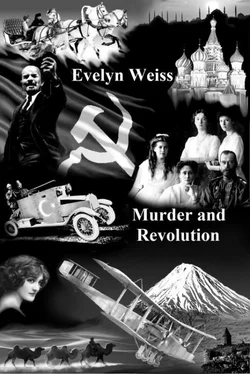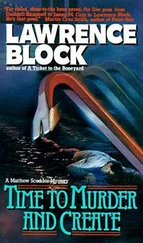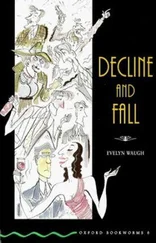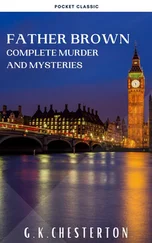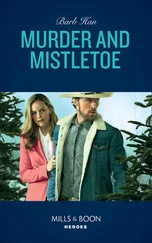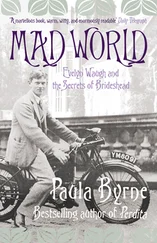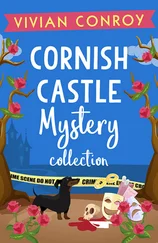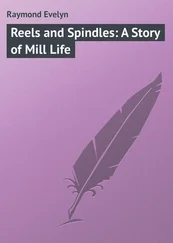We all stumble out of the wagon onto a patch of threadbare grass. There’s some light from the truck’s headlamps: enough to see we are in a strange, desolate landscape of tumbled, hilly knolls and odd square boulders. A grove of cypress trees stand up tall against the sky, which has changed from black to deep royal blue: dawn is not far away. I hear the hooting again, and Axelson says, as if to himself, “The owl of Athena.”
No-one else says anything. Again the guns poke into our skin, and we’re pushed along, past stone blocks. In the starlight, some of the piles of stones seem to form pillars and walls, as if set there by human hands.
We come to a slope; the grass is thin and sparse, growing here and there among tilted slabs, like a ramp. The soldiers push us up the ramp. At its top, on either side, are two columns of stone, like portals. A gnarled tree grows next to one of them.
The rifle is at his throat, but Axelson speaks.
“The Scaean Gate and the oak-tree.”
Out of the darkness, I hear Kılıç’s voice. He must have been waiting for us, at the top of the ramp.
“Well done, Professor. So, you know this place I’ve brought you to.”
Axelson replies quietly.
“Everyone knows it.”
“Everyone has heard of it – but you actually recognise it, in the dark.”
I can hear the satisfaction in Kılıç’s voice as he continues. “I’m glad that you, Professor Axelson, understand why I’ve chosen this place. The age-old battle of West against East, the peoples of Europe wrestling against the peoples of Asia. Always, in your stories, the West wins.”
He pauses, then looks at Axelson. “As you are so clever, Professor, tell us all what happened here, at the Scaean Gate. The gate of ancient Troy.”
Axelson speaks, his voice flat and dull.
“Hector, the great hero of the Trojans, was met here at the Scaean Gate by his wife Andromache, with their child Astynax. Andromache begged Hector not to go out to battle, but he went out bravely, and was killed by the Greek warrior Achilles, just outside the city walls.”
Kılıç nods, and gestures to the soldiers. They push us forward, deeper into the ruins. I hear Kılıç speaking, as if he is a tourist guide.
“This is the palace of King Priam. When Troy was sacked, some say Priam was beaten to death here by Achilles’ son, who used the dead body of Astynax, Priam’s grandson, as a club. That antagonism, that hatred, is how things were, and how things will always be, between Europe and Asia, West and East. But this time, the East wins.”
In the middle of the maze of crumbling walls and pillars, I see an open, grassy space. Three wooden stakes stand in a row.
Yuri looks at Kılıç. “I’m a Russian and a Cossack. Your talk of East and West means nothing to me. But it seems to me, Kılıç Pasha, that you are angry. Anger does not come from real strength of character. It comes from a lack of power; from resentment and fear.”
Kılıç snorts scornfully, but Yuri carries on as the soldiers start to drag him towards a stake. “Are you resentful of what you call the West? – of their money, their science and industry? You told me, Kılıç, that you had a soldier’s honor. Where I come from, a strong man, a Cossack warrior, might kill his enemies. But he would never harm a woman. He would show his strength and generosity by letting her go free and unharmed.”
Kılıç stares at me. Is Yuri’s attempt to save me having an effect? The soldiers continue to shove Yuri along; they are struggling with their task. Suddenly Kılıç pulls out a revolver.
“Captain Sirko, stop resisting. Walk over to the stake, now. Or, I will shoot Agnes in the stomach, and let her die here on the ground, slowly.”
Minutes pass, as first Yuri, then the professor and finally I am tied. We face forwards. The soldiers level their rifles. Beside them, Kılıç stands, ready to give the order. Behind his head, the sky is turning pink above an outline of moldering walls and the silhouettes of the cypress trees.
I see, in the furthest distance, a figure appear at the top of one wall. Kılıç glances over his shoulder at the stranger, and his eyes narrow. He lifts his hand to halt the soldiers. Then he looks sharply at them.
“Who is this, coming into Troy? I told all of you! – what we are doing tonight is secret. None of you were to breathe a word to anyone, not even the governor of the Canakkale prison. One of you must have told someone!”
The three men shake their heads. Muttering to himself, Kılıç leaves us, and walks toward the approaching silhouette. In the dim half-light, I can’t even tell if the unknown figure is a man or a woman. Perhaps a woman: she looks much shorter and slighter than Kılıç, as I see the two of them outlined against the brightening sky. For five minutes, the two figures speak together quietly.
The professor laughs bitterly. “This pompous fool Kılıç wants to play-act at an ancient legend. Now he wonders who this mysterious person is, coming secretly into Troy. Perhaps it is Ulysses?”
But Kılıç is already striding back towards us. There’s an urgency in his step. Before he reaches us, he calls, his voice shrill.
“Await my command before you fire – but, get your rifles ready. We need to shoot them quickly.”
I see beads of sweat on Yuri’s forehead. He’s murmuring: I realise that he is praying.
The professor speaks again. “I think the stranger has brought news that the war has ended. Kılıç will kill us now, and later he will claim that we were shot while the war was still on.”
Kılıç is with the soldiers now, whispering furtively to them. They glance around, peering anxiously at the walls and shadows that surround us. There’s fear in the three men’s eyes. But Kılıç, I can see, is coldly determined to kill us. Suddenly, I hear his voice, loud and harsh.
“Shoot them all in the head. You need to kill your target with one shot… when I give the word.”
The men put the rifles to their shoulders. Like Yuri, I’m praying. Oddest of all, I hear the professor’s voice again. He isn’t praying; he’s speaking. Clear and bold, he says the words of a poem.
“The lights begin to twinkle from the rocks:
The long day wanes: the slow moon climbs: the deep
Moans round with many voices. Come, my friends,
‘Tis not too late to seek a newer world.”
Kılıç glances one last time at us, his lip curled, his eyes like stones. I hear the click of the rifles’ catches. Axelson’s voice carries on.
“For my purpose holds
To sail beyond the sunset, and the baths
Of all the western stars, until I die.
It may be that the gulfs will wash us down:
It may be we shall touch the Happy Isles.”
Kılıç shouts. “Now!”
The guns fire.
It’s a deep, blissful blue; a color I’d never imagined: alive, sparkling and warm. The color of happiness. I’m looking out at the deep sapphire shades of the Aegean Sea, under a cloudless azure sky.
I’m leaning on the rail of the British battleship HMS Agamemnon. Professor Axelson was wrong: the war had not ended – quite. Talaat Pasha and his cronies have fled Istanbul, and the new government of Turkey has sent its representatives to beg the British for peace. The Turkish ambassadors are aboard this battleship. We are steaming towards the Greek island of Lemnos, where the ship will anchor and, this afternoon, the treaty will be formalized. Tomorrow, there will be peace between the Allies and Turkey, and the thousand-year rule of the Ottoman Empire will come to an end.
I hear footsteps on the deck beside me. Someone else is joining me to admire the scenery. Lord Buttermere looks out at the glittering waves. On one side of us, Lemnos rises from the water like a dream-island. I smell, above the waves, the scents of oleander and lavender carried to us from the island, which grows closer every minute. On the other side, I see the open sea, bounded by the shoreline of Turkey and the crumbling remains of ancient Troy. Below the ruins is the long yellow line of the beach where, long ago, the Greek ships landed.
Читать дальше
